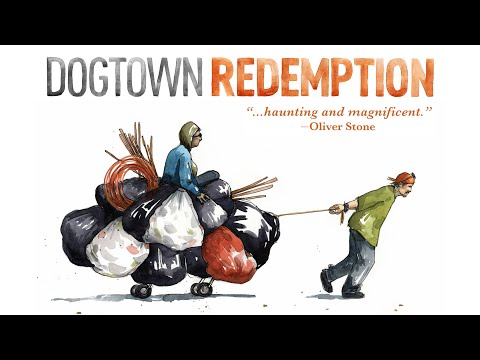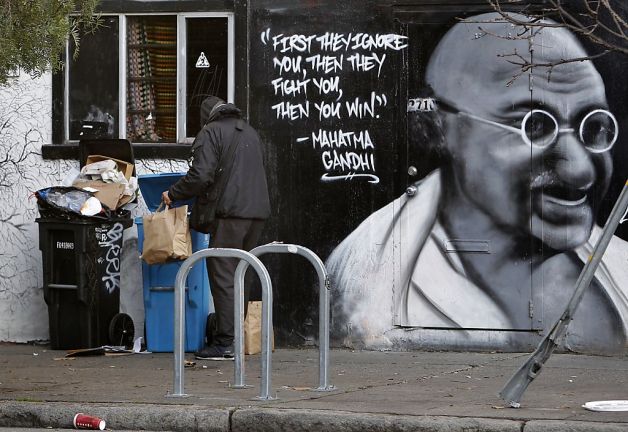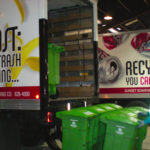A documentary film, Dogtown Redemption, delves inside the lives of West Oakland’s poor and homeless recyclers. While California must deal with its urban poverty problem, and rogue recyclers steal from recycling funds, overall the state’s Bottle Bill has significantly reduced waste.

Watch this video on YouTube
Dogtown Redemption, a documentary by Amir Soltani and Chihiro Wimbush, is the story of the US’s untouchables: the poor who survive by recycling trash in Oakland, California.
Dogtown Redemption looks at the creative ways in which the U.S. underclass creates its own jobs, community, and culture by mining trash in the streets of Oakland. At a time when so much of the middle class is sliding into poverty, these struggling people snatch hope out of despair, making something out of nothing. Soltani’s documentary illustrates how poor urban planning turned a thriving African American community into a destitute landscape dominated by industrial blight, with tensions rising from gentrification.


Another issue not necessarily raised in the accompanying clip, is how independent recycling centers take advantage of the poor as well as California’s Bottle Bill funds, cheating both. According to C.W. Nevius, San Francisco’s poor and homeless take the recyclables in for cash themselves, they give the goods to independent operators for a fraction of the real worth. Those operators then take the huge load to recycling centers, and cash in. While poor recyclers are paid on the basis of weight, if they cash in 50 aluminum, plastic, glass, or bi-metal containers at one time, they must be paid per-container.
Certain containers previously accepted at a higher redemption value are no longer eligible, hurting people who rely on recycling for income. — “LA Times“
Recycling fraud is also a problem, where centers claim redemption value from ineligible containers. Moreover, Bottle Bill funds are meant as a subsidy for waste haulers to recycle, and when containers are removed from recycling bins, the cost of trash hauling increases, and hauler’s incentives to go green are reduced.
STORY: Reduce, Reuse, Recycle: Urban Approaches to Zero Waste
Nevertheless, according to Brian Leubitz, the California Redemption Value system works very well for its intended goals: increasing recycling. In the latest report, aluminum recycling is at 99%, and glass at 91%. CalRecycle, officially known as the Department of Resources Recycling and Recovery, administers the California Beverage Container Recycling and Litter Reduction Act. Beverage containers covered are subject to California Redemption Value (CRV), which is 5 cents for containers less than 24 ounces, 10 cents for containers 24 ounces or larger. Thanks to the CRV cash incentive, nearly 300 billion aluminum, glass, and plastic beverage containers have been recycled since the program began in 1987.
Thus, despite some unintended consequences of California’s CRV program, the bill has significantly reduced waste by providing individuals and their waste haulers incentives to recycle. More funds must be provided for the program, however, to account for the fraud. Additionally, more jobs, more economic opportunities must be provided for California’s marginalized towns and cities. This is primarily a problem of urban poverty. Until the economy improves for the people on the streets, rogue recycling will remain a difficult fact of life.
Updated 23 October 2023












